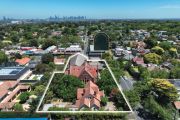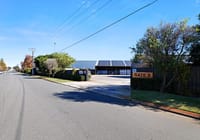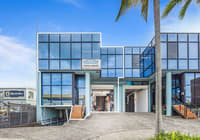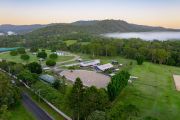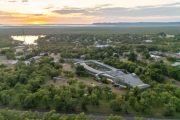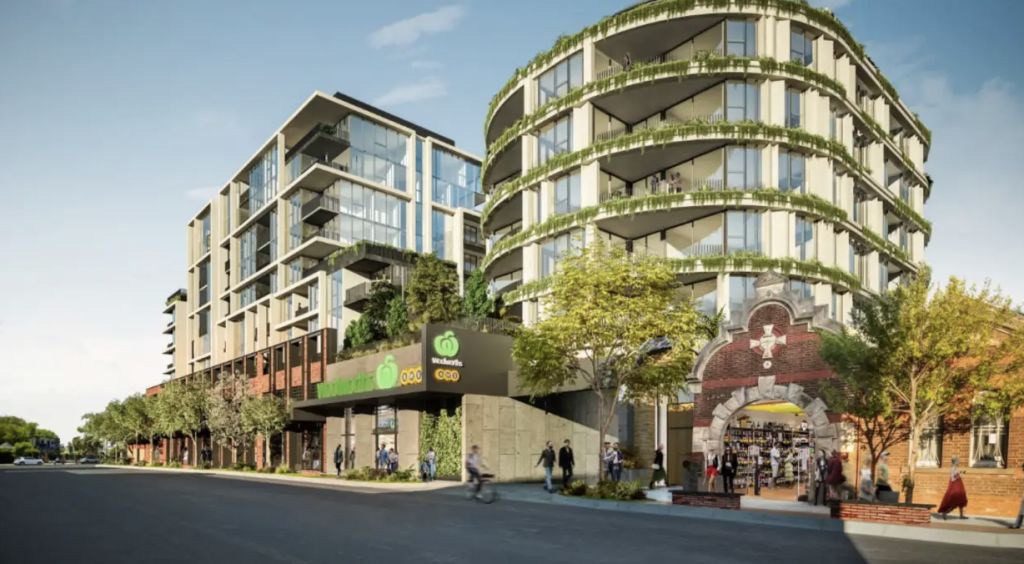
Coles pays $100m for Melbourne site in turf war with Woolworths
Powerful Melbourne property families the Herszbergs and the Langers have emerged as big winners from the ongoing battle between Coles and Woolworths for control of the best suburban supermarket sites, after selling a prized Coles supermarket-anchored site to Coles for close to $100 million.
The large 6417-square-metre site bordered by Carlisle, Camden and Alfred Streets in Balaclava in Melbourne’s inner south-east comprises five properties that developer Sam Herszberg and the Langer’s GLG Group have amalgamated over the past 20 years, starting with the purchase of the Coles supermarket and car park in 2000 for $8.3 million from its original developer Michael Lasky.
Since then, the partners have acquired four more neighbouring properties – the retail arcade leading into the supermarket and shops on Carlisle Street – for almost $27 million.
A Coles spokesperson confirmed the Balaclava acquisition and said the site had potential to act as a “catalyst for the transformation of the retail precinct”.
Mr Herszberg said his family and their partners GLG had been exploring all options for the site, including build-to-rent, before being approached by their sitting tenant.
“We bought the Coles a little over 20 years ago as a generational asset and are traditionally holders [not traders],” he told The Australian Financial Review.
After negotiating and accepting an offer from Coles that was too good to refuse, Mr Herszberg said he was “a little sad” to part ways with the property, but excited about the next stage of its development.
“Carlisle Street needs new development,” he said.
For Coles, the deal will ensure it retains control of a site it has traded from for decades and, perhaps more importantly, prevent bitter rival Woolworths, which operates a supermarket directly opposite the road, from becoming the dominant player in the affluent suburb.
Highlighting the battle for supremacy in Balaclava, in 2021 Woolworths purchased the 1831 sq m car park directly behind its own supermarket for $6.6 million, a move that more than doubles its footprint, paving the way for it to redevelop and enlarge its existing supermarket, which is currently much smaller than the Coles.
Wizel Property Group CEO Mark Wizel, who negotiated many deals involving the supermarket giants in his time at CBRE, said the sale in Balaclava was another example where either Coles or Woolworths needed to defend its position in a key area.
More than a decade ago, Coles bought the Richmond Plaza in inner Melbourne to ensure it retained a supermarket in the future mixed-use development (undertaken by Grocon).
“Both Coles and Woolworths will be very aggressive in situations where there is the remote possibility that they may lose a well performing store to one another,” Mr Wizel added.
This occurred last year when Woolworths bought a Coles-anchored mall in Miranda in Sydney’s south for $68 million, giving them the option to replace Coles as the supermarket anchor when the current lease expires.
Both supermarket chains have also been quick to snap up new sites in prime locations to ensure their supermarkets are part of any new development, and keep their rivals out.
This scenario has played out in nearby Elsternwick, another affluent Melbourne suburb, where Woolworths is seeking to offload the former ABC studios site it purchased for $45 million in 2019, but only after securing a permit last year that will ensure one of its supermarkets will anchor the future apartment development.
“Following development approval, we are moving into the next phase of the project and seeking partner who can deliver a vibrant cultural, retail and residential hub for the local community, underpinned by a new Woolworths supermarket,” explained Andrew Loveday, general manager of property development at Woolworths Group.
Stonebridge Property Group’s Justin Dowers, Julian White, Kevin Tong and Chao Zhang are handling the sales campaign.
The willingness of Coles and Woolworths to pay over the odds for sites has made it difficult for private developers and landlords to say no when either of them comes knocking.
While the exact price paid for Balaclava sites remains subject to confidentiality agreements, well-placed sources indicated it was near $100 million.
JLL retail director Tom Noonan said developers, investors and occupiers were all vying to secure supermarket sites and “unlock their enormous potential”.
“These sites often represent extremely strategic landholdings with planning schemes that support high-density mixed-use development.” he added.

